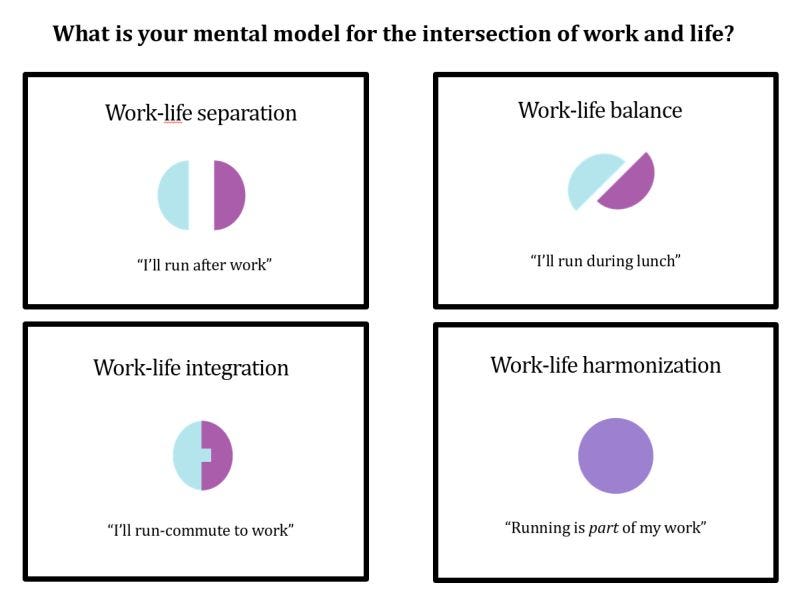RTO mandates lead to top performers leaving
ALSO: Salesforce CEO claims AI is doing half the firm's work
Short newsletter this week - just focussing on the big stories of the week.
Fast Company published an interesting article about RTO mandates. Companies who demand a return to the office have 13% higher staff turnover with high performers especially inclined to leave. The people who stay are the ones who can’t afford to quit (we might assume that their engagement goes down even if they don’t leave)
54% of workers would use AI without company approval so says the lastest BCG ‘AI at work’ report (out last week). Only a third believe they’ve been adequately trained in AI by their company. The report finds that strong leadership can turn Ai pessimism into optimism: when leaders show strong support for AI, positive feelings about it rise from 15% to 55%
Salesforce supremo Marc Benioff claimed that AI was doing half of all the work at his organisation (convincing no one)
The New York Times published a list of the 22 new jobs that AI might create grouping them into jobs dependent on trust, integration and taste (a categorisation that is adjacent to what Daniel Susskind called out a couple of months ago). ‘Trust’ roles are jobs where a human has been brought into an AI process to take ultimate responsibility for what is being produced. It would include people auditing AI, translating AI’s output, authenticating AI and assessing the ethics of AI, and acting as a legal guarantor of what is being produced. Integration roles involve workers who are responsibility for integrating AI systems into existing workflows. Finally there are jobs like AI personality director and differentiation designer who shape the tone of voice that machines will take when dealing with humans. Worth a read/listen
I’ve been loving Karen Hao’s Empire of AI about the origins and endeavours of Sam Alton’s Open AI. As he’s set to be one of the world’s main characters for the next decade there’s plenty to be concerned about
Nice Reel about the farce of 3 day policies when there’s not enough office space
I liked this (from recent podcast guest Alexia Cambon about the relationship between running and her work:
She says ‘Have you ever had the experience of being stuck at your desk unable to solve a work problem, only to go for a run and have it solve itself in your head by the time you finish?’
Want to be seen as cool? Cool people are largely perceived to be ‘extroverted, hedonistic, powerful, adventurous, open and autonomous’







I read the NYT article with interest and am struck with the parallels with machine translation and post-editing. All those "AI audit"-type jobs - if it follows the languages profession, I would put good money on those practitioners being paid at half the rate for AI auditing as they are today for doing the work the AI is expected to do, even though the responsibility is the same or greater.
Post-editing a machine translation requires the same skills as professional human translation plus in addition post-editing skills, an even greater eye for detail and concentration (especially because of the plausibility), and often takes the same amount of time as a human translation from scratch - and sometimes a human translation is actually quicker. Yet rates for post-editing are 50-60% of translation rates if you're lucky. And that's before you even consider the sameness of AI-slop - every contract, every report, every bit of code, all the same...
The languages profession is losing skilled people because they can earn more at Lidl (cf the evidence to the HoL committee on public sector interpreting). If the same practice happens across the "AI-audit" field, who is going to be willing to do the jobs with accountability?
great